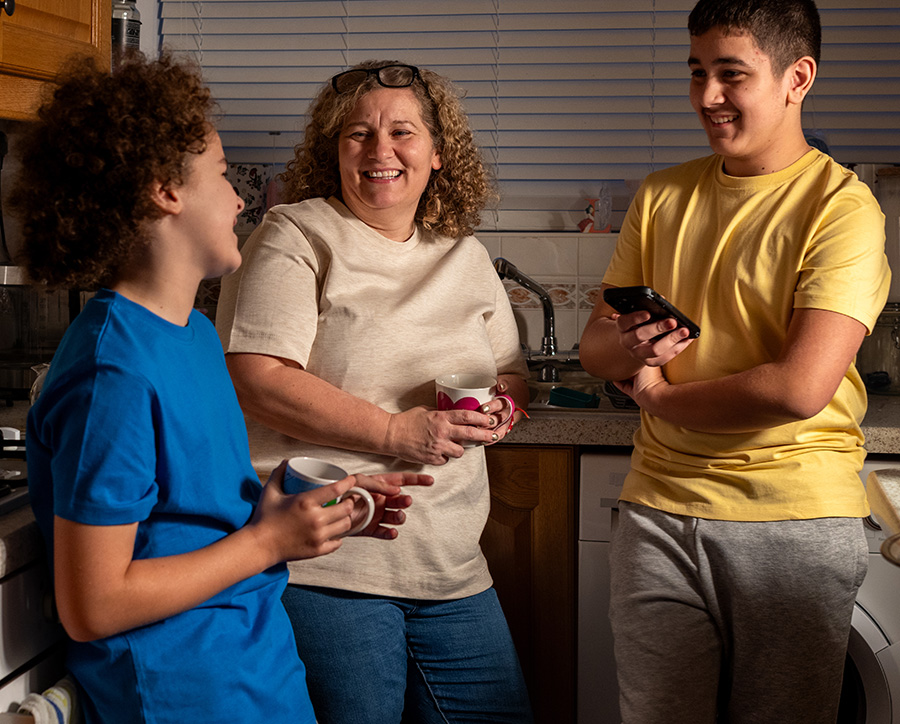Provide a nurturing environment for children under 16.
Offer a home and guidance for young people aged 16-17.

Every child deserves a home, no matter where their journey began.
Children seeking asylum have already overcome so much. With a carer’s support, they can settle, learn, and grow in a safe and welcoming environment. Your kindness could make all the difference.



Brian and Hazel have been foster carers for over 20 years, providing a safe and supportive home for unaccompanied asylum-seeking children. Many arrive in the UK alone, with little English and no formal education, often carrying the trauma of their past. Through patience, kindness, and simple acts like cooking familiar meals and finding creative ways to communicate, Brian and Hazel help them build confidence, learn, and thrive.
Some children may have been trafficked to the UK and are subject to exploitation. Carers need to be aware that some children may still be at risk from their traffickers, even after they have been fostered.
It is important that children you are fostering are able to continue to observe their own cultural and religious traditions, as far as they wish.
Children may have lived through war or persecution and then endured a frightening journey to the UK, carers need to be aware of the impact of trauma upon the children in their care and be prepared to work with other professionals to offer intensive support.
Many children have limited or no English upon arrival. Experience shows that most are keen to learn English and pick it up quickly. Carers will play a key role in communicating with them and helping them to make the most of education on offer.
A child in your care may need to claim asylum while they are with you, the carers’ role is primarily to provide emotional and practical support, helping them deal with the uncertainty that the asylum process can bring. You will need to support them to build a future of themselves in the UK, while preparing them for the possibility that they may be returned to their country of origin.
The first step is to fill out our online form, (right).
This appeal is being run by the East Midlands Strategic Migration Partnership on behalf of the 10 local authorities in the region. Your details will be shared with your local authority, and they will be in touch to provide you with more information on being a foster carer or a supported lodgings host for an unaccompanied asylum-seeking child.
However, if you would like further information at this stage please visit the FAQs page.
This training has been designed to support prospective UASC specific carers who are going through the recruitment process and also existing carers who wish to care for UASC, so that carers are equipped to meet the unique needs of UASC.
Following expressing an interest in caring for UASC via the form above, you will be referred to your host Local Authority who will take you through the carer recruitment process, as you are going through this process your Local Authority will request access to this training on your behalf and you will receive an email with the login details and a link to the training, you will also be able to access the training through the link on this website and will need to use your login details to access your training modules.
If you are going through the recruitment process and have not received access to this training, please raise this with your host authority.